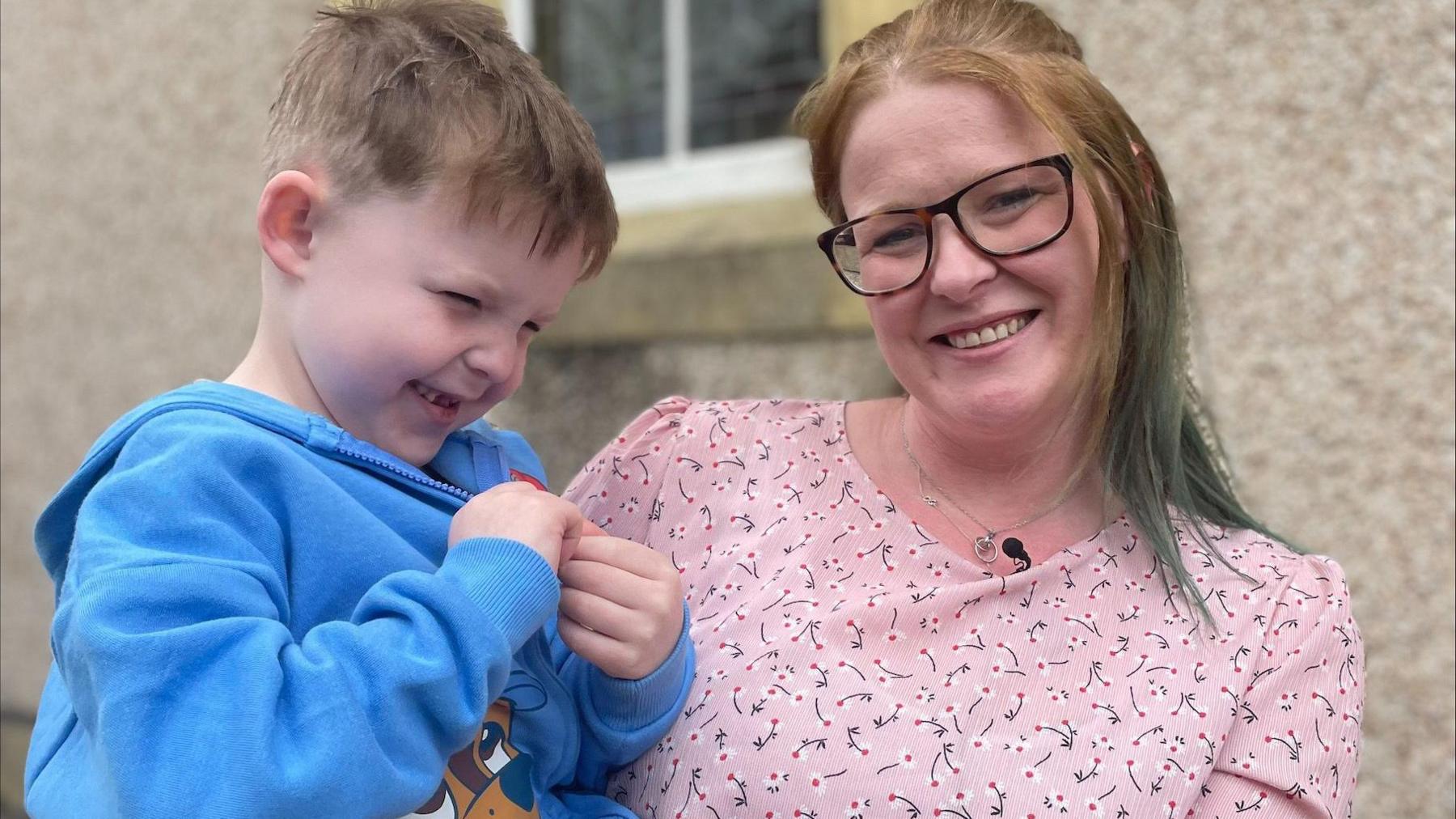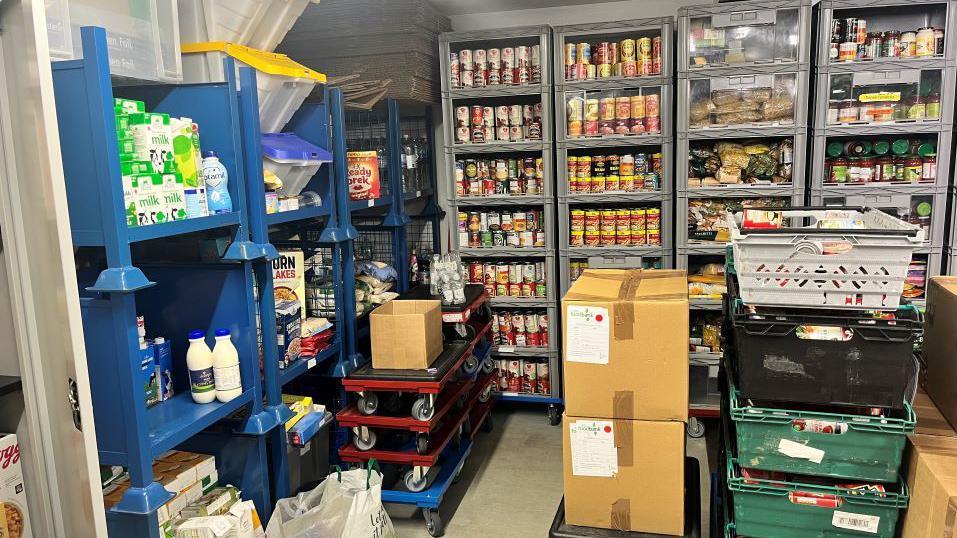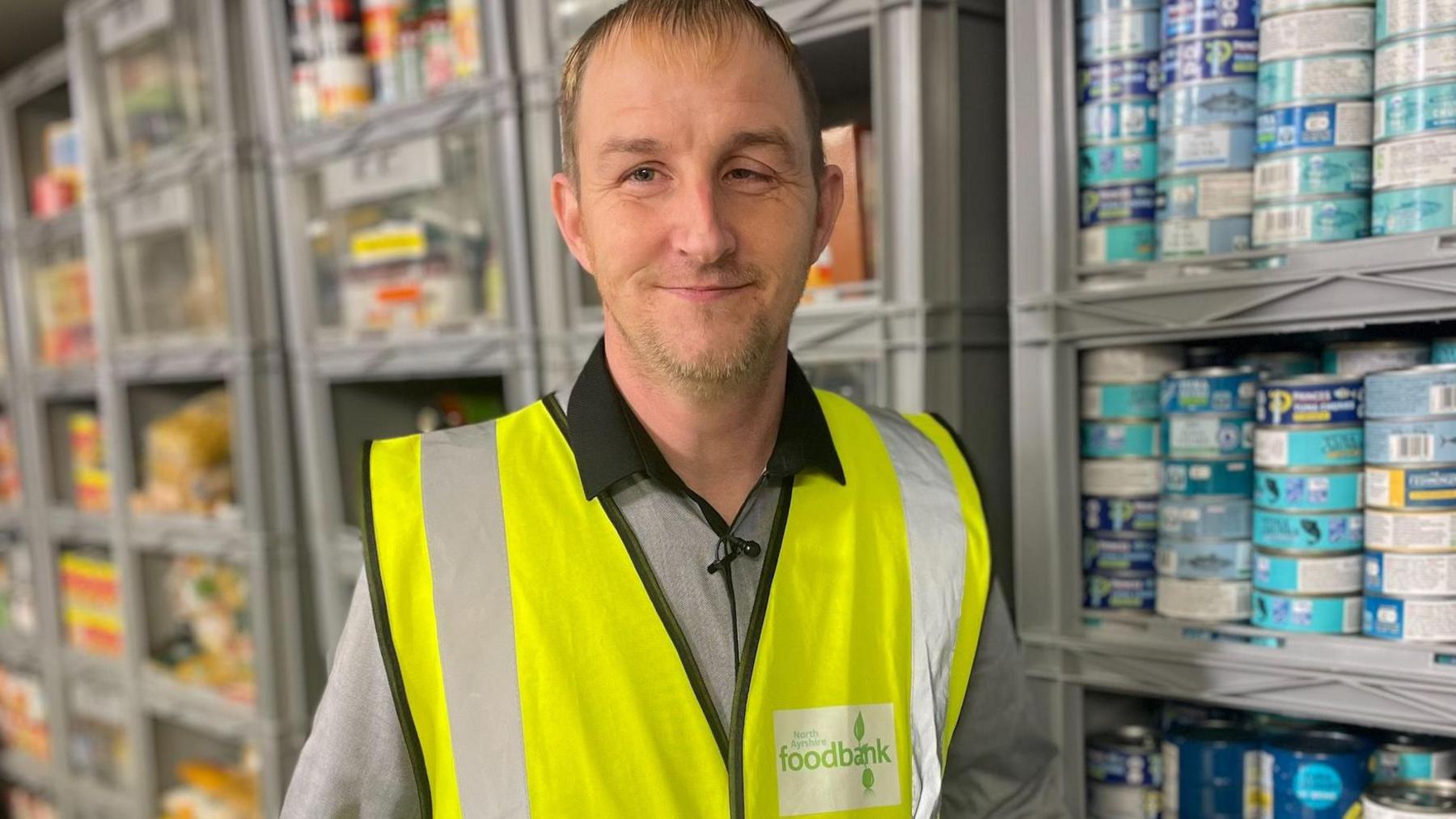'It is such a relief that we won't miss a meal'

Louise says knowing there are people out there to help makes such a difference
- Published
Mother-of-four Louise is a regular face at the North Ayrshire foodbank larder and says some weeks she would not have survived without its help.
“Being able to know that we can definitely get enough food for everybody and nobody needs to miss a meal is such a relief,” she says.
“There's a little bit of feeling like you're not quite doing enough, you're not quite good enough as a parent,” she says.
“But knowing that other people are in that struggle as well and there's people out there to help you, it just makes such a difference.”
Food insecurity
According to a new study, North Ayrshire is the area of Scotland where people are most likely to need help to put food on the table.
BBC analysis of research from Leeds University and the consumer group Which? looked at 363 councils across the UK, assessing neighbourhoods on measures such as distance to large supermarkets, the number of families on free school meals and households in food poverty.
The study found 29 councils where half the people were living in places considered at high risk of food insecurity.
Three were in Scotland - North Ayrshire where 65% of people lived in such neighbourhoods, East Ayrshire (59%) and West Dunbartonshire (50%).

The foodbank and larder helped 5,000 people in North Ayrshire last year
For Louise, help first came in the form of an emergency food parcel arranged through her health visitor.
She now pays £4 a week to stock up on fresh meat, tins, toiletries and fruit and veg using the group’s food larder – saving hundreds of pounds a month.
Louise says she is determined to do the best she can for her family, despite the current financial climate.
“It's scary as a parent or even as an individual, knowing that it's not as easy to be able to make a home-cooked meal," she says.
"Sometimes it's easier to just buy the £1 ready meal, but when you're a parent you don't want to feed your children that, you want them to get fresh vegetables.”

James oversees the logistics of packing the emergency parcels
The foodbank and larder – which is run by the Trussell Trust – helped more than 5,000 people in the North Ayrshire community last year.
Volunteer James oversees the logistics of packing the emergency parcels.
The 41-year-old has also benefited from the service in the past.
“Knowing that I can put a tin of beans on the table or a tin of spaghetti on the table, I know it's there if I need it and it's the same with anybody else," he said.
Now, he wants to give back to others.
“It's not about getting food and handing it to the customers," he said.
"It's about putting a smile on their face and showing them that we're there for the community."